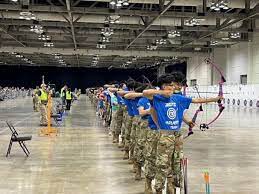16 JUN 2022: Bethesda, MD-As part of the National Association of School Psychologists' (NASP) commitment to ensuring all children's ability to thrive in school, at home, and throughout life, NASP has adopted the "Resolution on Policing in Schools." The work of NASP is grounded in its mission, professional standards, position statements, resolutions, policies, and advocacy platforms, all of which are guided by research. This resolution is the result of 2 years of research analysis, input from NASP members and other groups with diverse perspectives, and careful deliberation among NASP's governance groups.
As a longtime leader in efforts to improve school climate and safety, NASP is committed to advancing policies and practices that ensure the safety and well-being of all students and staff. A critical component of this work is protecting the civil rights of those who experience inequity, racism, and injustice, whether as a result of the absence of adequate safeguards or the unintended consequences of ineffective school safety efforts.
Policing in schools has come into focus in recent years as a significant area of concern because of the clear, growing body of evidence regarding the challenges and potential harm that the routine use of law enforcement in schools can cause, particularly for Black, Indigenous, and other students of color; students with disabilities; students in the LGBTQ+ community; and those with intersectional identities. The purpose of this resolution is to more clearly communicate NASP's official policies, consistent with the research and with our ethical obligations to advocate for social justice and equity as part of our school safety expertise.
"We know that many individual school resource officers (SROs) and other law enforcement are dedicated to keeping all members of their school community safe," says NASP President Laurie Klose. "We also understand that the decision of school staff to engage law enforcement in situations that are the responsibility of educators, such as discipline, often contributes to the scope of the problem. But the aggregate data is pretty clear that the routine presence of law enforcement in schools is causing systemic harm to minoritized students, particularly with regard to disproportionate punitive and exclusionary discipline practices. We simply cannot ignore these data."
The passage of this resolution clarifies NASP's position on school police in a few key ways. NASP recognizes the important role of SROs and other law enforcement as first responders in school crises and in specific elements of safety activities. We remain committed to improving appropriate collaboration and training with law enforcement in this arena. However, because of the growing body of research that demonstrates the harm routine school law enforcement presence can cause minoritized populations, NASP opposes federal funding for the purpose of increasing the number of police in schools.
"NASP respects the unique role that law enforcement plays when incidents of criminal activity, violence, or other harm threaten our students and staff," says Klose. "This is their expertise and their job. However, the physical and psychological safety of all students must be prioritized in every school, and the potential effects on students and the school community must be carefully considered when deciding if or how to utilize school police."
NASP recognizes that some schools will continue to use school-based law enforcement as an integral part of school safety efforts, which in some states is mandated by state law. As such, NASP's short-term goal is to mitigate harms associated with routine school-based policing, such as strongly opposing any role of law enforcement in school discipline and advocating for the development and proper enforcement of a detailed memorandum of understanding (MOU) between the district and law enforcement that clearly defines roles and expectations. MOUs also should mandate ongoing training to reduce harm and protect students' rights (e.g., training that meets the standards of the National Association of School Resource Officers). Similar related training should be provided to school administrators, teachers, and other school staff whose actions also can contribute to harmful outcomes for minoritized students.
Long-term goals are to eliminate the presence of policies and practices that perpetuate harm and to promote policies and practices that contribute to safe and inclusive learning environments. This includes increasing access to comprehensive school mental health services and school-employed providers, maintaining a positive school climate, and implementing effective discipline practices as part of a comprehensive approach to school safety.
NASP again acknowledges that perpetuation of systemic causes of racism and injustice as they play out in schools-and the responsibility for breaking them down now-lies with all education professions, including school psychologists. "This responsibility does not lie solely within the law enforcement community," emphasizes Klose. "Far from it. As educators, we have a lot of work to do ourselves in preventing discriminatory harm when it comes to school safety policies and practices. This includes examining our own historical contributions to the problem as a profession and identifying the actions we can take to create change going forward. This resolution is a step forward on that path."
NASP is committed to working with policy makers and allied parties to enact effective laws and policies that improve the physical and psychological safety of students and staff while promoting fairness and justice for all. This necessarily requires working to dismantle policies and practices that contribute to harmful and inequitable outcomes.
NASP represents 25,000 school psychologists throughout the United States and abroad. NASP empowers school psychologists by advancing effective practices to improve students' learning, behavior, and mental health.
###
Reference:
National Social Assistance Programme (NSAP)
National Association of School Psychologists (NASP)
National Archery in the Schools Program (NASP)
National Association of School Psychologists - Wikipedia
National Association of School Psychologists
National Association of School Psychologists (NASP)
International School Psychology Association: ISPA
National Association of School Psychologists (NASP)


No comments yet